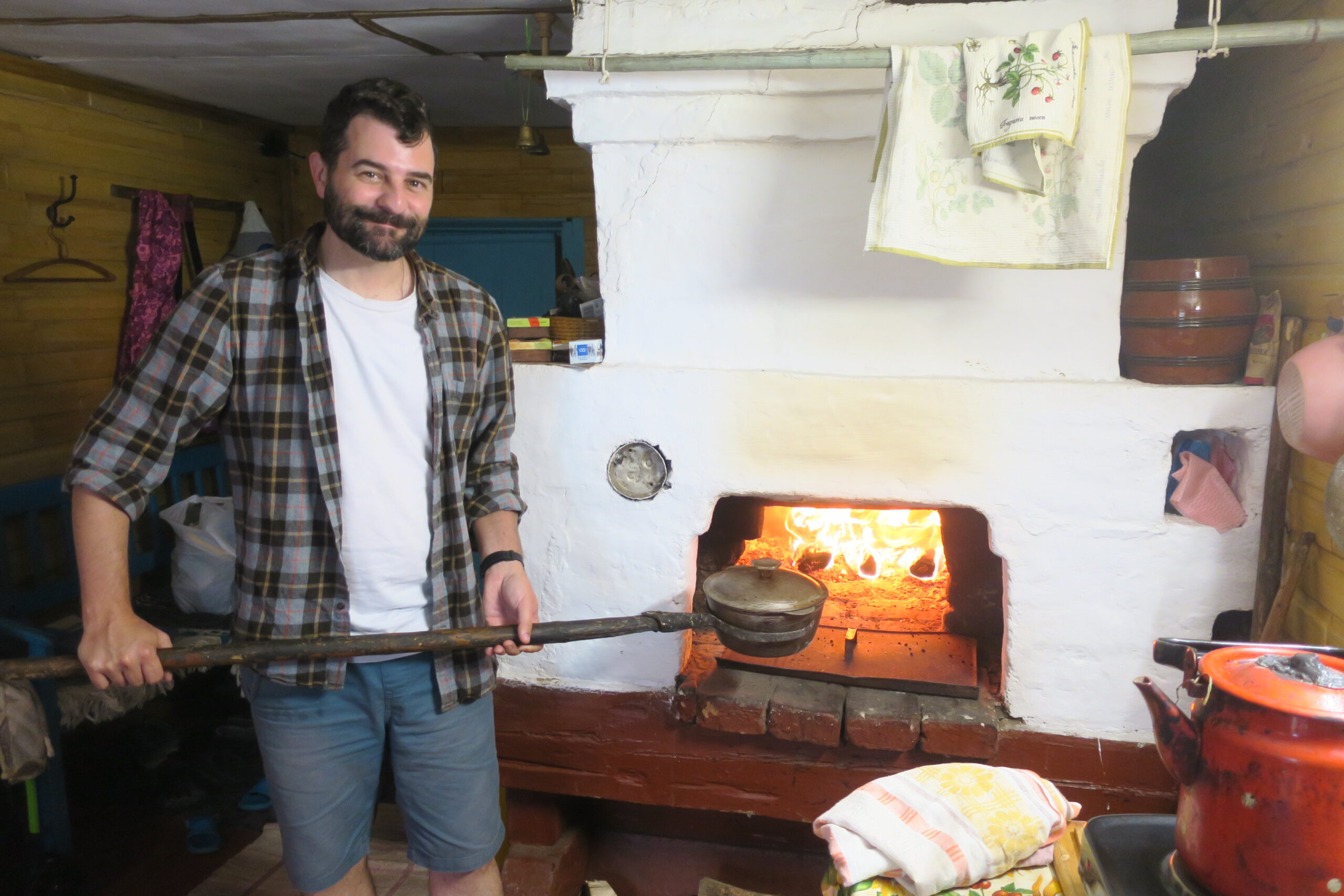Jack Seitz ’05 is a true example of the interdepartmental goals of the College Farm. This history major’s experience with farming in the College Garden (before it became the College Farm) helped guide his path to a Fulbright fellowship, Master’s degree in Central Eurasian Studies, and Doctoral dissertation on agriculture in the Kazakh steppe.
 Jack worked in the College Garden for two academic years and one summer of his Dickinson experience. In true College Farm fashion, Jack was bribed into his first farming position by a friend who offered fresh produce after frisbee practice. Jack fondly remembers many antics on the farm, including a mishap with a professor and some dead rabbits. Perhaps most importantly, conversations about food and agriculture in the Garden’s beat-up ’78 Chevy Silverado started Jack on a path of deep thought about agricultural practice that has taken him from West Virginia to Kazakhstan.
Jack worked in the College Garden for two academic years and one summer of his Dickinson experience. In true College Farm fashion, Jack was bribed into his first farming position by a friend who offered fresh produce after frisbee practice. Jack fondly remembers many antics on the farm, including a mishap with a professor and some dead rabbits. Perhaps most importantly, conversations about food and agriculture in the Garden’s beat-up ’78 Chevy Silverado started Jack on a path of deep thought about agricultural practice that has taken him from West Virginia to Kazakhstan.
Immediately after graduation, Jack won a Fulbright Fellowship to Kazakhstan to research the Virgin Lands Campaign, which was a project undertaken in the 1950s by the Soviet Union to plow up “virgin” steppe in Kazakhstan and plant wheat. After his Fulbright, Jack moved to his grandparents’ small farm in York County, PA and started a Certified Naturally Grown vegetable truck with two other DCF alums.
However, Jack was not content with participating in the existing food system in Pennsylvania. Instead, he wanted to promote food security. So, Jack moved to the coalfields of Southern West Virginia to work with a non-profit that helps low-income communities access produce. While there, he helped establish farmers markets, teach youth, and create a demonstration farm.
While maintaining this busy work schedule in West Virginia, Jack earned acceptance to an M.A. program in Central Eurasian Studies at Indiana University. He deferred the program for a few years to continue working in West Virginia, but eventually moved to Indiana. When not studying Central Asian history, languages, and culture, Jack volunteered at the Indiana University college garden. He then enrolled in a PhD program at Iowa State University focusing on agricultural and rural history. Jack’s dissertation drew upon his Fulbright research, discussing the role of agricultural science, peasant farmers, and agronomists in the Russian Empire’s settler colonization. It also connects Kazakhstan to other semi-arid regions, including the North American plains.
Jack is now an Assistant Professor of History at Tennessee Wesleyan University. His unique background in the fields of history, agriculture, and politics creates interesting opportunities for him to explore often disregarded issues like environmental history, settler colonialism, erasure of people of color, and problematic capitalism in the food system, in his classes.
Living in East Tennessee, Jack is happy he’s able to have a big garden with fruit trees and blueberry bushes and wake up to the view of the Smoky Mountains every day, but he realizes how tricky learning about place, and living and owning what is essentially stolen land, can be.

Garden crew, 2005.
Jack recalls the College Garden as the spark that helped him realize that farming is about more than just the beauty of the land; it requires asking difficult questions about power structures and relationships with food. In the midst of his pursuit of high-level, systemic change, Jack maintains empathy and respect for the difficulties of farming. He credits this empathy to his time working on his own farm and in the Dickinson College Garden.
When he is not being (in his own words) “an ornery critic of our agricultural system,” Jack plays the banjo and enjoys singing around a campfire with his friends.
The College Farm is proud to be represented by alumni like Jack, who are working to tackle big-picture issues in the food system. We applaud his amazing work so far and are excited to see where his research will take him next!